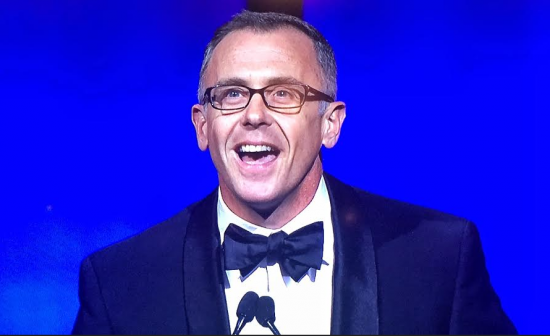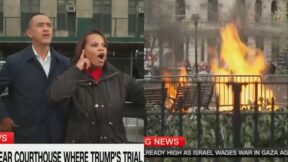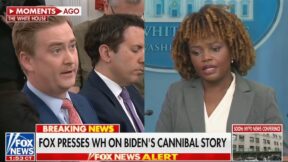 This week, The Braiser’s in Chicago, recapping the events of the 25th annual James Beard Foundation Awards.
This week, The Braiser’s in Chicago, recapping the events of the 25th annual James Beard Foundation Awards.
As we fly home to New York this afternoon, we reflect on the shortcomings of this year’s James Beard Foundation Awards, and what it needs to set right before it (potentially) returns to New York in 2018.
- It’s was Chicago Mayor Rahm Emanuel‘s courtship of the JBFA that brought the awards to Chicago not just in 2015 but through 2017, and it’s clear the city didn’t really need the business. Taking place in the same stretch as the NFL Draft and Microsoft Ignite, the city lacked the means, and hotel capacity, to accommodate those who made the trip. Rather than Chicago’s tourism board making outreach, guests faced another kind of midwestern hospitality — hotel rates 500% higher than their New York counterparts. Finally dining editors from across the country discovered what their political counterparts already know: Emanuel’s ambitions outpace his capabilities.
- The JBFA failed to take advantage of Chicago’s homegrown talent. Besides severely limiting the amount of photographers on the red carpet, and actively discouraging New York press from seeking credentials, the production still couldn’t motivate local talent like Alinea‘s Grant Achatz to walk the carpet, only hours after he celebrated his restaurant’s tenth anniversary.
- If the JBFA really wants to be the Oscars of the food world as they so often proclaim, they wouldn’t have moved the awards away from a media hub, and they would partner with a food network, not a livestream channel, to broadcast the awards. Then it would be forgivable to allow Alton Brown to play guitar for 40 minutes before the first award was presented. Instead the JBFA are programmed to entertain an invisible audience they wish was watching rather than the the people who matter most, wearing Nominee stickers on their dresses and lapels, all deserving enough respect to be honored in under three hours.
- For a 25th anniversary, the night lacked star power. The JBFA will never have the clout of the Metropolitan Museum of Art‘s Costume Institute gala, always held the same night, but if that’s really what the awards seek to be, “Steve the Bartender” from Sex and the City a decade too late isn’t going to do it.
- At Lincoln Center, the press room was never a desirable place for a winning chef and their friends to spend three hours, a glass of champagne forced in their hand and sly camera phones in their face (as union rules kept a tight rein on press photography there.) But on Monday night, nominees and entourages flooded the basement of the Lyric Opera with plenty of bars and space to socialize, including two giant color flatscreens in the press room where crowds stood watching the remaining awards on TV rather than from in their seats. The JBFA either needs to find a venue that allows drinking during the ceremony, like at their media awards dinner, or they need to hurry the awards up so the night’s biggest winners aren’t speaking to a half-empty auditorium.
- Throughout the nearly four-hour ceremony, Chicago failed to prove itself to the audience as a dining powerhouse. New York City continues to earn its own award category and if anyone thought Chicago was due the same privilege, the awards failed to make the city as much as the city failed the awards, as no individual Chicago chef or restaurant won in any category save for Outstanding Restaurant Design.
- If you played Jenga at the Broken Shaker‘s takeover of La Sirena Clandestina or had a shot of mezcal poured by a robot arm at Frontera Grill, you know the parties were lame.
- Lastly, a pall was cast over the night the moment news broke of Josh Ozersky‘s passing. And for at least the next two years, and as long as the awards continue in Chicago, they’ll be cursed by the memory of his loss.
Fix what’s wrong, and bring them home.
Have a tip we should know? tips@mediaite.com






